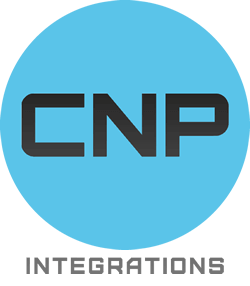In this part two post of our CNP site redesign case study on site performance optimization, I will explore specific tips for optimizing and testing your site and give you a list of some tools you can use for performance testing on your Joomla CMS portal. (Missed Part 1? Read it here.)  The myth that images are what will slow your site down is only half true.
The myth that images are what will slow your site down is only half true.
Performance and speed are so important. Just like you don't let target keywords diminish the quality of your message, you should have clean, optimized, and consistent images to reinforce your identity as visitors navigate around your site.
In many cases you can benefit by trying several format options for optimizing images. You might use a gif vs a png if you need transparency. In other cases, you can use a jpeg with different quality resolutions to bring images sizes down in size. Test these options to get the images as small as possible without degrading the quality beyond what you are comfortable with.
In the case of our site, we made sure we had the right mix of visually interesting graphics and tested several optimization techniques to maximize quality while reducing image sizes. For example, when you have fewer colors and no gradients sometimes you can use gif images with lower color pallets and the difference is not noticeable but the size is dramatically smaller.
What about compression options and cache?
There are many contributing factors in keeping your page load times fast. Depending on your template and associated extensions used, there can be various CSS and JavaScript files being used on your site and compressing these can have a positive impact your performance.
You can use gzip and other extensions to compress javascript and css files where ever possible and system cache to cache images and improve speed once the initial images and content has loaded once. Make sure you test the functionality of your site as you turn these compression options on and off since compressing these files can either mess up your template or kill functionality of extensions. We found that several of the compression or cache management options when turned on can actually slow your site down if your host’s server configurations use alternative caching systems. Man, can this get frustrating clicking to clear your cache and Joomla’s cache in order to test site performance impacts!
Social technologies can also bog down your page loads at no fault of your own. Everyone wants to be social and while these are very useful tools for connecting with your audience, they should be tested. There are often templates and modules that have connectivity to networks like Facebook, Twitter and others that can dramatically slow page loads if one of these sites makes a slight change in their API. Like buttons, for example, has been a big culprit for killing page load times. Make sure your extensions are configured correctly so that you do not duplicate the amount of queries on any given page.
How many modules are used on your pages?
If you have too many modules on your index page this can really hurt you for page loads.
Depending on the modules you use, there is sometimes a lot of data and database queries that get called. In the past, we have especially noticed this for modules connecting to the K2 extensions but there are plenty of others. Always try to keep the least amount of modules loading on your pages. If you are having trouble, run some online tests by turning modules/plugins on and off to verify the impact they might be having.
If after you take these steps you are still getting slow page loads, then it's time to start asking some important questions.
What else is trying to connect to or from your site?
If you are running “look up” services such as advanced security monitoring or live chat systems these can have a dramatic effect on how your pages load. Make sure in your testing process you disable these and verify how much they might bog your site down. This testing will also help you identify other potential issues related to performance that you might otherwise not be able to find.
On our new site in particular had a few challenges because there are a lot of technologies deployed on our web site that run in the background such as security monitoring tools and chat clients that need to grab information from visitors and communicate to external systems.
Useful Tools For Testing
Here is a tool you can use to do speed comparisons: http://www.iwebtool.com/
This tool will help you identify recommended performance options for your site and the test rates your site. http://gtmetrix.com
This tool suite offers a lot of optimization analytics but it requires a monthly subscription. http://www.seomoz.org
WC3.org has several tools and resources worth checking out:
Markup: http://validator.w3.org/
RSS Validation: http://validator.w3.org/feed/
CSS: http://jigsaw.w3.org/css-validator/
Mobile Content: http://validator.w3.org/mobile/
Link Checker: http://validator.w3.org/checklink
And here are a ton more: http://www.w3.org/QA/Tools/
Here is some interesting reading too: http://www.w3.org/QA/TheMatrix
Source forge has some open source projects to consider: http://sourceforge.net/directory/os:windows/freshness:recently-updated/?q=Load%20testing
Paid services can also provide similar information, usually a lot of information in one interface:
• http://loadstorm.com/load-testing-tools
• http://www.loadtestingtool.com/
• http://smartbear.com/products/qa-tools/load-testing
Have you just optimized your own site? What was slowing you down? And do you have any useful tools that we may have left out of our list?

Follow